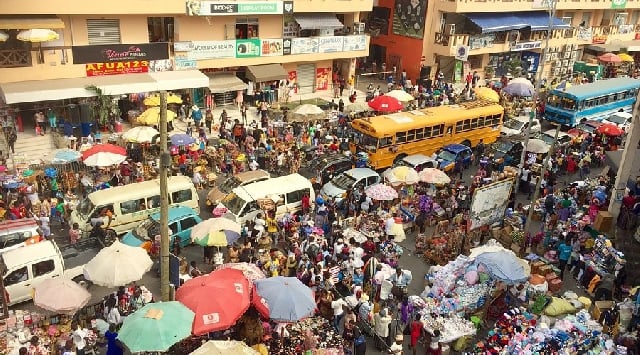The Ghana Private Road Transport Union (GPRTU) and the Concern Drivers Association have issued a stark warning to the government and city authorities: address the escalating issue of street trading encroaching upon roads, pavements, and bus stops, or face a nationwide strike on May 19. This ultimatum underscores the growing frustration among commercial transport operators who contend that the unchecked proliferation of street vendors poses a significant threat to public safety and contributes to crippling traffic congestion in major urban centers across the country. They argue that the current situation not only endangers pedestrians and drivers but also hinders the smooth flow of traffic, impacting economic productivity and the overall quality of urban life. The impending strike represents a decisive call for action, demanding immediate intervention to restore order and safety to Ghana’s roadways.
At the heart of the transport operators’ concerns is the blatant disregard for existing traffic regulations, specifically the Road Traffic Regulation 2012 (LI 2180), which explicitly prohibits trading on roads and pavements. Despite the existence of this legal framework, street vendors continue to operate with impunity, occupying spaces designated for vehicular and pedestrian movement. This disregard for the law, according to the GPRTU, has created a hazardous environment where accidents are more likely to occur and traffic flow is severely impeded. The union’s representatives argue that the government’s failure to enforce existing regulations has emboldened street traders, leading to the current crisis. The planned strike aims to force the government to acknowledge the severity of the situation and take concrete steps to enforce the law.
The GPRTU’s demands extend beyond simply enforcing existing regulations. They call for a comprehensive approach to urban traffic management, including the designation of appropriate parking areas and the implementation of more effective traffic control systems. They argue that the lack of designated parking spaces further exacerbates the congestion caused by street trading, forcing drivers to park haphazardly, which further obstructs traffic flow. Furthermore, the union believes that outdated and inadequate traffic management systems contribute to the chaotic conditions on Ghana’s roads. By modernizing these systems, the GPRTU believes that traffic flow can be optimized, reducing congestion and improving safety for all road users.
In a strategic move to amplify their message and ensure their concerns are directly addressed by those in power, the GPRTU has extended an invitation to several key government ministers to participate in the planned demonstration on May 19. This invitation includes the Ministers of Transport, Roads and Highways, Local Government and Religious Affairs, Trade and Industry, and the Interior. The union hopes that by directly engaging with these ministers during the protest, they can initiate a constructive dialogue and collaborate on finding sustainable solutions to the challenges posed by unregulated street trading. This invitation underscores the GPRTU’s commitment to finding a collaborative solution rather than simply disrupting economic activity.
The Concern Drivers Association, echoing the sentiments of the GPRTU, has emphasized that the primary objective of the planned strike is not to disrupt economic activity or inconvenience the public. Rather, they aim to advocate for necessary reforms that will promote safety and order on Ghana’s roads. They contend that the current chaotic state of urban traffic is detrimental to everyone, including street traders, as it creates an unsafe and disorganized environment. Their message emphasizes the importance of creating a regulated and organized space where both commercial transport operators and street traders can coexist and conduct their businesses without jeopardizing public safety.
In essence, the looming nationwide strike represents a critical juncture in the ongoing struggle to manage urban spaces effectively in Ghana. The transport unions’ demands highlight the urgent need for a comprehensive and multifaceted approach to address the complex interplay of traffic regulations, urban planning, and economic activity. The success of the strike, and ultimately the resolution of this issue, hinges on the government’s willingness to engage in meaningful dialogue and implement concrete measures to restore order and safety to Ghana’s roadways. The strike serves as a wake-up call, demanding a concerted effort from all stakeholders to create a more organized, efficient, and safe urban environment for all citizens.


